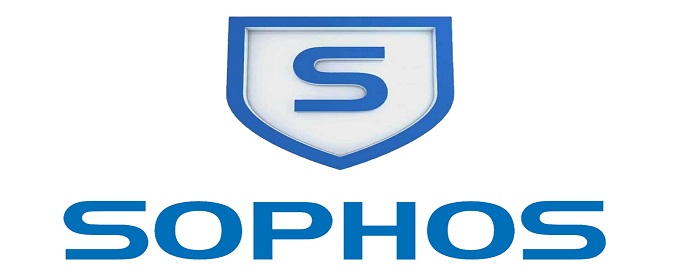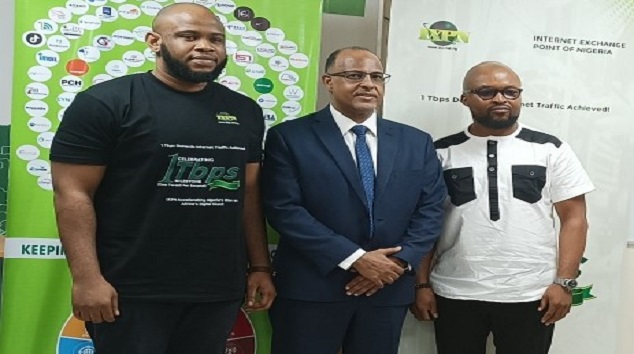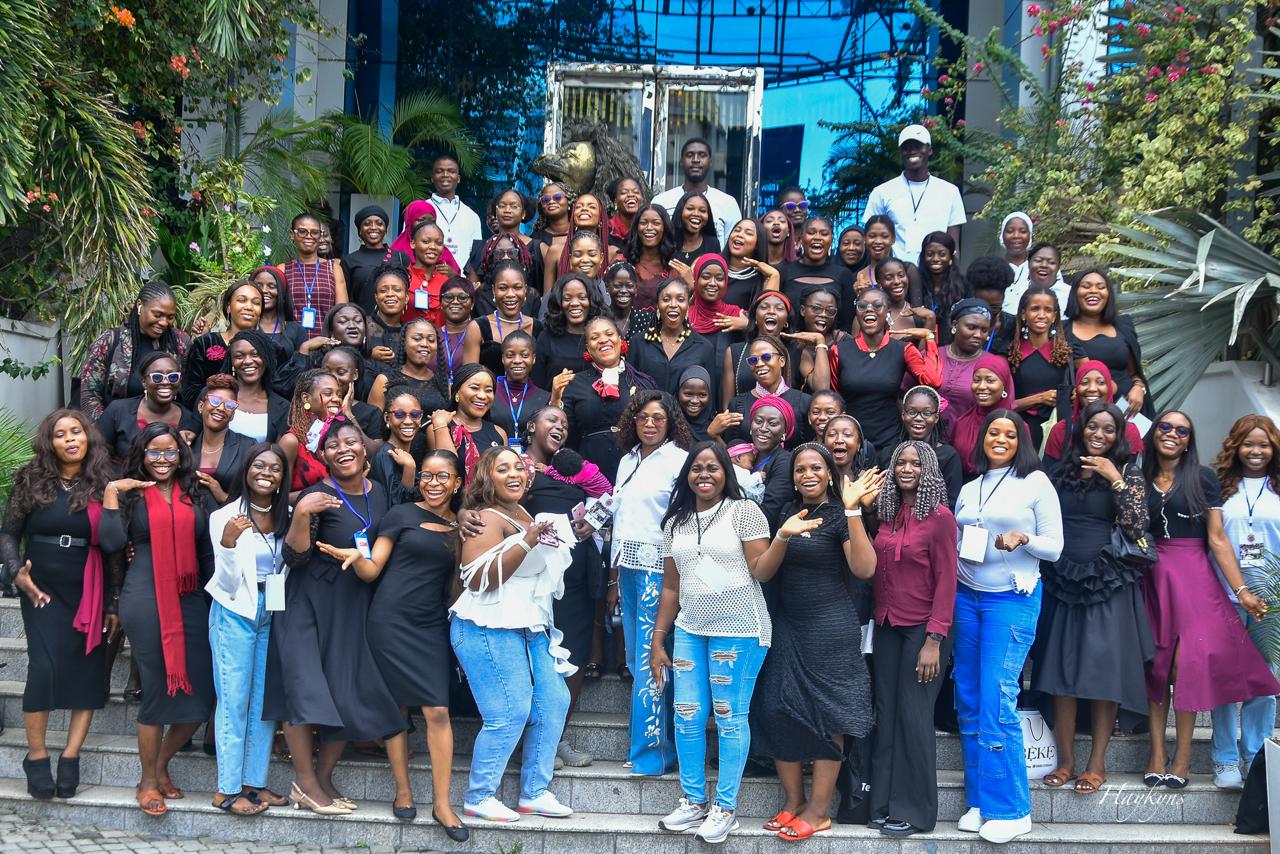Telecom
Sophos Uncovers How Criminals are Leveraging “As-a-Service” Business Model with Sha Zhu Pan Kits to Expand Cryptocurrency Fraud

Sophos, a global leader in innovating and delivering cybersecurity as a service, today revealed how sha zhu pan scammers—those conducting elaborate, romance-based cryptocurrency fraud—are leveraging a business model similar to cybercrime “as-a-service” by selling sha zhu pan kits on the dark web, globally expanding to new markets.

Sophos details these advanced sha zhu pan operations (also known as pig butchering) in the article, “Cryptocurrency Scams Metastasize into New Forms.”
Originating from organized crime gangs in China, the new kits provide the technical components needed to implement a specific pig butchering scheme called “DeFi savings.”
Criminals position DeFi savings scams as passive investment opportunities that are similar to money market accounts, often times to people who have no understanding of crypto. Victims only need to connect their crypto wallet to a “brokerage account,” with the expectation that they will earn significant interest from their investment.
Victims are adding their crypto wallets to a fraudulent cryptocurrency trading pool, which the fraudsters then empty.
“When pig butchering first appeared during the time of the COVID pandemic, the technical aspects of the scams were still relatively primitive and required a lot of effort and guidance to successfully scam victims. Now, as the scams have become more successful and the fraudsters have refined their techniques, we’re seeing a similar evolution to what we’ve seen with ransomware and other types of cybercrime in the past: the creation of an as-a-service model. Pig butchering rings are creating ready-made DeFi app kits, which other cybercriminals can purchase on the dark web. As a result, new pig butchering rings that are unaffiliated with Chinese organized crime groups are appearing in areas like Thailand, West Africa and even the U.S.
As with other types of commercialized cybercrime, these kits lower the entry barriers for cybercriminals interested in pig butchering and vastly expand the victim pool. Last year, pig butchering was already a multi-billion-dollar fraud phenomenon; sadly, the problem is likely only to grow exponentially this year,” said Sean Gallagher, principal threat researcher, Sophos.
Sophos X-Ops has been tracking the evolution of pig butchering schemes for two years. The earliest iterations—dubbed by Sophos as “CryptoRom” scams—involved connecting with potential victims on dating apps and then convincing them to download fraudulent crypto trading applications from third-party sources. For iOS users, these scams required victims to download an elaborate workaround that allowed scammers to bypass security on victims’ devices and gain access to their wallets.
In 2022, the scammers continued to refine their operations, this time finding ways to bypass app store review processes to sneak their fraudulent apps into the legitimate App Store and Google Play Store. This was also the year that a new scam pattern emerged: fake cryptocurrency trading pools (liquidity mining).
In 2023, Sophos X-Ops uncovered two vast pig butchering rings—one based out of Hong Kong and one based out of Cambodia. These rings leveraged legitimate crypto trading apps and created elaborate fake personas to lure victims and steal millions from them. Further investigation revealed that pig butchering operators were adding AI to their arsenal.
At the end of 2023, Sophos X-Ops uncovered a vast liquidity mining operation involving three separate Chinese organized crime rings targeting nearly 100 victims. During the investigation into this operation, Sophos X-Ops first noticed the availability of pig butchering scam kits.
In the most recent pig butchering operations that Sophos X-Ops has investigated, the fraudsters have removed any previous technological impediments, as well as significantly lowered the amount of social engineering required to steal from victims. In the DeFi savings schemes, victims now engage in fraudulent crypto trading through legitimate, well-known cryptocurrency apps and give (albeit unknowingly) the scammers direct access to their wallets. In addition, the scammers can conceal the wallet network that launders stolen crypto, making the scams harder for law enforcement to track.
“The DeFi savings scams are the culmination of two years of pig butcherers refining their operations. Gone are the days when the scammers had to convince victims to download some strange app or transfer the crypto themselves into a soon-to-be-stolen digital wallet.
“The fraudsters have also learned how to better ‘market’ their schemes. They’re taking advantage of how liquidity mining pools operate to steal the funds by telling victims it’s a simple investment account. This is often an easier sell, especially since most people don’t understand the ins and outs of cryptocurrency trading and everything is done under the guise of trusted brands.
“In other words, it’s never been easier for people to fall victim to pig butchering, which means it’s never been more important to be aware that these scams exist—and know what to look out for,” said Gallagher.
Tips to Avoid Falling Prey to Pig Butchering
To avoid falling victim to a pig butchering scam, Sophos recommends the following:
· Be skeptical of strangers that reach out via social networking sites like Facebook or texts, especially if they want to quickly move the conversation to a private messenger like WhatsApp
o This also applies for new matches on dating applications—especially if the stranger begins talking about trading in crypto
· Always be weary of any “get rich quick” scheme or cryptocurrency investment opportunity that promises large returns in a short amount of time
· Be familiar with the lures and tactics of romance scams and investment scams. Non-profits like the Cybercrime Support Network have resources that can help
· Anyone who believes they have fallen victim to a pig butchering scam should immediately withdraw any funds from any affected wallet and contact law enforcement
Timeline of Sophos’ Two-Year Investigation into Pig Butchering
2021
· Sophos X-Ops spots the first “CryptoRom” fake trading apps targeting users in Asia
· Sophos X-Ops then discovers these scammers expanding their operations, targeting victims in the U.S. and Europe
2022
· Sophos X-Ops discovers more fake apps from CryptoRom scams, as well as a new workaround scammers are using so that victims can successfully download the fake apps on their iOS devices
· A new type of pig butchering scam emerges: liquidity mining
2023
· Sophos X-Ops uncovers the first fake apps for CryptoRom schemes found in the Apple App Store as scammers find ways to bypass the app store review process
· Sophos X-Ops uncovers two vast pig butchering rings operating out of Hong Kong and Cambodia. Rather than using fake apps, these scammers are now exploiting legitimate crypto trading applications, as well as building elaborate personas to hook their victims
· Sophos X-Ops finds more fake apps—and learns that pig butcherers are now adding generative AI to their toolkit
· The story of a man who lost $22,000 in a week to a pig butchering scheme leads Sophos X-Ops to a vast liquidity mining scam operation being run by three different Chinese organized crime rings
2024
· Sophos X-Ops uncovers the most technically sophisticated pig butchering scheme yet—“DeFi savings” scams. These schemes and other crypto-based scam operations are for sale as kits, leading to pig butchering rings popping up in new areas of the world
For more about the current DeFi savings schemes and the evolution of pig butchering in “Cryptocurrency Scams Metastasize into New Forms” go to Sophos.com.
Telecom
Nigeria Hits 1 Terabit Internet Traffic Milestone

IXPN, Nigeria’s leading Internet Exchange Point, is proud to announce a landmark achievement: crossing 1 Terabit per second (1Tbps) in aggregate peak domestic internet traffic for the first time.

This milestone signifies a major leap forward in developing Nigeria’s internet infrastructure and underscores the critical role of local internet infrastructure in driving economic growth, innovation, and connectivity for millions of Nigerians.
“This milestone is more than just a number. It’s a symbol of Nigeria’s digital maturity and our united strides towards becoming a tech-driven nation. By keeping local internet traffic within Nigeria, we reduce costs, improve speeds, and ensure our digital economy thrives with homegrown infrastructure.” said Muhammed Rudman the CEO of IXPN.
“Achieving 1 Tbps is a significant victory for Nigeria’s ICT ecosystem, a breakthrough for domestic internet traffic. It serves as a catalyst, enabling millions of Nigerians to enjoy faster, more affordable, and resilient internet connectivity.”

1 Terabit per second is a game-changer for Africa’s most populous country. To put it in perspective:
- Mega Video Calls: A speed of 1 Tbps can support over 1 million concurrent Zoom calls, allowing students, entrepreneurs, and professionals to connect and drive Nigeria’s digital revolution.
- Streaming Frenzy: With 1 Tbps, more than 200,000 people can stream HD Nollywood films or movies on Netflix simultaneously without any buffering or interruptions.
- Data Superpower: This speed enables the transfer of the entire contents of 50,000 smartphones—including photos, apps, and videos—in just one second.
For Nigeria, hitting this milestone means reducing reliance on international bandwidth, decreasing latency for local services, and strengthening our position as Africa’s digital heartbeat. This milestone is a testament to the power of collaboration, innovation, and the relentless pursuit of a faster, more connected Nigeria.
This accomplishment goes beyond technical advancements; it has significant economic implications. By encouraging local traffic exchange, IXPN reduces dependency on international bandwidth, leading to:
- Significant Cost Savings: By utilizing local data exchange, Nigerian businesses can save millions of dollars annually on international bandwidth fees.
- Enhanced Speed and Connectivity: With reduced latency, users experience smoother streaming, gaming, and real-time services, enhancing their overall online experience.
- Increased Resilience: Strengthening Nigeria’s internet infrastructure protects against global disruptions, ensuring consistent access to vital services such as healthcare and education.
- Improved Efficiency: Optimizes digital services like fintech, edtech, e-commerce, and e-health, propelling innovation and growth in these sectors.
Surveys conducted among IXPN members over the years have shown a growing percentage of local internet traffic in Nigeria. A recent report indicates that some connected members can localize or domesticate up to 70% of their internet traffic through IXPN.
“As more content providers, ISPs, banks, and public institutions localize their traffic through the IXP, end users benefit directly,” added Raphael Iloka (Marketing Manager). “We’re not just routing data — we’re building the foundation for Nigeria’s digital economy.”
The 1 Tbps peak highlights the remarkable impact of collaboration among all stakeholders. This milestone is a significant achievement not only for IXPN, but for the entire ICT ecosystem. IXPN deeply appreciates the vital contributions of all stakeholders involved.
To our Members and Partners: Your trust and participation have been essential to our growth. Together, we have established a hub where networks can interconnect, innovate, and thrive.
To the Government and Regulators: We express our sincere appreciation to the Nigerian Communications Commission (NCC) for all its support over the years and its vision of a digitally inclusive Nigeria.
To our Team: We extend our gratitude to our engineers, network administrators, and all other staff who work tirelessly behind the scenes to push boundaries.
To the Global Community: We are grateful to partner organizations like the Internet Society (ISOC). Your support and advocacy in domestic peering empower us all.
Reaching 1 Tbps is just the beginning. As data demands skyrocket with AI, IoT, 5G, and immersive technologies, IXPN is committed to staying ahead of the curve. Here’s how:
- Scaling Infrastructure: We are investing in advanced hardware and software to support multi-terabit capacities.
- Enhancing Resilience: We are strengthening our network to ensure uptime, security, and adaptability in an ever-changing digital landscape.
- Empowering Underserved Communities: We aim to expand our reach to rural areas, bridging the digital divide, and supporting agritech, edtech, and telehealth.
- Strengthening Africa’s Digital Sovereignty: Partnering with regional IXPs to keep Africa’s data on the continent.
Telecom
TD Africa’s TecHERdemy Empowers 400 Women to Lead in Tech

On April 17, 2025, the atmosphere at Yudala Heights was electric with pride, hope, and inspiration as TD Africa, the leading tech distribution company in Sub-Saharan Africa, celebrated the graduation of 400 young Nigerian women from its flagship TecHERdemy program.

Over the past six months, these incredible women immersed themselves in rigorous, hands-on training in Cybersecurity, Data Science, Artificial Intelligence, and Software Development. They are now confidently stepping into the tech world, ready to make their mark.
The event brought together top voices in the industry, including Dr. Leo Stan Ekeh, Chairman of the Zinox Group, who commended the graduates for their resilience and brilliance. In his keynote speech, he shared a hopeful vision for Africa’s future, calling these young women “the pioneers of a new, inclusive era of tech leadership on the continent.”
Mrs. Chioma Ekeh, CEO of TD Africa, also delivered a heartfelt message, urging the graduates to let their values guide them as they navigate their careers.
“Hold tightly to your values. Let integrity guide your work, let innovation fuel your dreams, and let your impact speak louder than your résumé,” she encouraged.
The ceremony was filled with emotion as graduates shared their personal stories of transformation. One of them, Yetunde Kayode, now a certified data scientist, summed it up beautifully: “This program changed my life. I’m walking away empowered, skilled, and deeply grateful to Mrs. Ekeh and the TecHERdemy team for believing in us.”
Fifteen exceptional participants were also honoured for their outstanding performance and leadership during the program, reminding everyone that excellence comes in many forms.
TecHERdemy, which launched in November 2024, was built with a simple but powerful mission: to equip young Nigerian women with globally relevant digital skills and open doors to a tech career. But what happened over those six months went beyond just skills; it sparked a movement.
This graduation wasn’t just the end of a program. It was the beginning of a brighter, more inclusive future for tech in Africa.
Telecom
MTN Nigeria Faces Class Action Lawsuit over Alleged Data Mismanagement

Nigerians have launched a class action lawsuit against MTN Nigeria, accusing the telecom giant of unexplained data usage and rapid depletion.

The controversy erupted after a viral post on X (formerly Twitter) showcased an individual’s interest in taking legal action, along with evidence of unusual data activity.
This post rallied many others to join the cause, sharing their own grievances and pledging support.
A Google Form was circulated to collect names of affected users, highlighting issues such as false data top-ups and excessive costs without value.
Comparisons to data usage and pricing in other countries only fueled the frustration, and numerous Nigerians expressed their determination to pursue justice.
Social media buzz amplified the issue, with mixed reactions ranging from encouragement to skepticism about the lawsuit’s potential impact.
Meanwhile, MTN Nigeria has not yet released an official response to these allegations.

 Telecom2 days ago
Telecom2 days agoDigital Transformation Remains Africa’s Gateway to Economic Advancement – Adumike

 Telecom2 days ago
Telecom2 days agoPAFON 2.0: Experts Discuss Pathways to Boost Financial Inclusion in Nigeria

 General News2 days ago
General News2 days agoEFCC Clarifies SCUML Certificate Misuse amid CBEX Ponzi Scheme Scandal

 Telecom1 day ago
Telecom1 day agoMTN Nigeria Faces Class Action Lawsuit over Alleged Data Mismanagement

 E-Financial2 days ago
E-Financial2 days agoCBN, NGX Group Defend Economic Reforms at Nasdaq

 Telecom1 day ago
Telecom1 day agoNigeria Hits 1 Terabit Internet Traffic Milestone

 General News1 day ago
General News1 day agoFG to Introduce New Tax Credit Scheme to Replace Pioneer Status Incentive

 E-Financial1 day ago
E-Financial1 day agoFCMB Capital Markets Leads ₦11.85bn GLNG Bond for LNG Plant Expansion

























